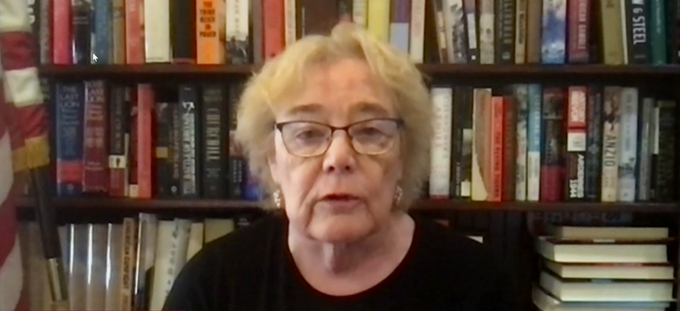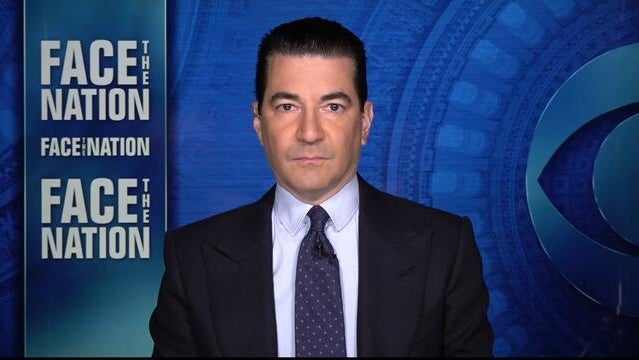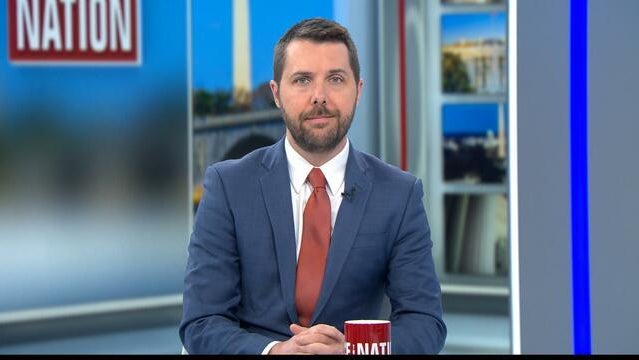| "The only conclusion you can reach is that he intended to accelerate that violence against the former vice president." - Rep. Zoe Lofgren, member of the House Jan. 6 committee, on a tweet former President Trump posted on the day of the U.S. Capitol attack Welcome to the "Face the Nation" Five at Five newsletter. Scroll down for your five takeaways from today's broadcast of "Face the Nation with Margaret Brennan" on CBS. Did someone forward you this? Sign-up at cbsnews.com/email. 1. Rep. Lofgren: Trump intended to "accelerate" the violence against Pence on Jan. 6  Rep. Zoe Lofgren, who serves on the Jan. 6 House select committee, said Sunday that former President Donald Trump intended to "accelerate" violence against then-Vice President Mike Pence on the day of the assault on the U.S. Capitol. What we asked: "Your colleagues on the committee, Republican Congressman Adam Kinzinger said on another network this morning that he just received a death threat against him, his wife, and his five-month-old child for the work he's doing. He said there is violence in the future. Do you agree that you have a fear of political violence and have you received threats?" What Lofgren said: "Well, I don't want to go into the threats I've received. I think it just encourages more of them. But it's very concerning that Adam and his wife and his little baby were threatened. I saw the threat. It was a written threat. We saw that Republican Congressman, a very conservative representative, Crenshaw was roughed up over the weekend at a Republican meeting, because he was not conservative enough and I think that's what the former president has unleashed here. You know, when he sent out the tweet, attacking his vice president, he already knew that the violence was underway. The only conclusion you can reach is that he intended to accelerate that violence against the former vice president. So, we're in a very rough time in America right now. And we all of us elected officials, but also just Americans and their neighbors need to stand up for the rule of law. And against political violence. It's not what America is about." Why it matters: Trump's efforts to strong-arm his vice president into rejecting state electoral votes and declaring him the winner of the 2020 presidential election was the focus of the select committee's third public hearing Thursday, during which panel members detailed just how close the violent mob of Trump supporters who breached the Capitol building came to Pence. 2. Dr. Gottlieb expects a slower rollout of COVID vaccines for kids compared to other age groups  Former FDA Commissioner Dr. Scott Gottlieb said Sunday he expects the COVID-19 vaccine rollout for America's youngest to be relatively slower than other age groups because of the need for people who are "specially trained." What we asked: "This is a pretty unique rollout for these youngest of Americans. In fact, children under the age of three can't go to these mass vaccination sites that we've seen for older people. How complicated is rolling this out to the youngest Americans going to be?" What Gottlieb said : "Well more complicated than other age segments, I think it's going to be a little bit more of a slow rollout relative to what we've seen in past rollouts with the other age groups. There are going to be pharmacies that are vaccinating children. CVS is going to move it into their pharmacies, but they're only moving into the pharmacies with advanced care providers with their minute clinics, you're probably not going to see clinic stood up maybe around children's hospitals, you'll see some clinics stood up, but most people are probably going to get vaccinated and their pediatrician's offices. And it's going to take a little bit more time to get the vaccine into those local settings because it's more difficult to vaccinate a child who is very young, you need people who are specially trained to do that. And so you want, you want the settings to be appropriate." Why it matters: Some 20 million babies, toddlers and preschoolers are now eligible to be vaccinated for COVID-19 , after CDC Director Dr. Rochelle Walensky signed off on her agency's outside vaccine advisers unanimous vote to recommend shots from Moderna and Pfizer and BioNTech for children as young as six months old. 3. NEC director: WH is working with Democratic leaders on legislation to tackle inflation  White House Director of the National Economic Council Brian Deese said Sunday that the Biden administration is negotiating with Democrats in Congress on legislation to tame inflation. The package is expected to include measures like tax reform and lowering the cost of prescription drug prices. Deese said he is "hopeful" that it will come together "in the coming weeks." What we asked: "If inflation is the number one priority right now, when are you scheduling a vote to do the things you just laid out?" What Deese said: "We're working very closely with congressional leadership, with Senate leadership on that. Senator Schumer is working with his caucus to try to get a final package in place and we're hopeful that we'll see progress on that in the coming weeks." Why it matters: As Deese admitted this morning, inflation is unacceptably high right now, and with factors like the war in Ukraine and a pandemic, there are limited tools that policymakers have to tackle the problem.
4. Cleveland Fed Bank president: It will "take a while" to get inflation back down to 2%  Loretta Mester, who is the president and CEO of the Federal Reserve Bank of Cleveland, explained how the Fed is working to raise interest rates to bring inflation down, without sparking a recession. What we asked: "This sustained high inflation continues to surprise Federal Reserve officials. Chairman Jerome Powell said as much this week, and that's why he said there was this unusually large interest rate increase of 75 basis points. He expects another similar one in another few weeks. What would alter that plan for you?" What Mester said: "Well, what we're looking at is trying to get our interest rates up to a more normal level so that we can stem some of the oversized demand momentum in the economy and bring it back down so that we can relieve some of those inflationary pressures. So we're going to be looking for the month-to-month changes in inflation rates to get some really good evidence on whether we've seen inflation first stabilize and then begin to move back down. It is going to take a while to get inflation back down to 2%. But what we're looking for is that we can see some moderation in demand, which has been incredibly strong. Bringing it back in alignment with supply side, which of course, as you know, has been constrained, alleviating some of that price pressures, getting inflation moving back down and on a sustainable path back to 2%, which is our inflation goal. So that's what we're going to be looking at, is what's going on in the monthly numbers. And frankly, the May CPI report basically was bad across the board, in terms of we didn't really see inflation stabilize. In fact, some of the measures actually looked worse in May than in April. And so that was part of the calculus of why moving up at a slightly higher than normal rate increase happened at our meeting last week." Why it matters: The Federal Reserve took aggressive action this week to tame inflation, which is now at a 40-year high, by raising interest rates by 0.75%. Powell indicated after the decision that the rates will continue to rise by increments of 0.5% or 0.75% until inflation gets under control. 5. Dr. Kendi: I'm going to teach my daughter Juneteenth is "freedom day"  Dr. Ibram X. Kendi, a professor, author and CBS News racial justice contributor, explained Sunday how to talk to children about Juneteenth. What we asked: "I know you have a 6-year-old daughter. So I wonder, how are you going to teach her what this holiday is?" What Kendi said: "Well, I'm actually going to teach her that it's freedom day. And that throughout this nation's history, there has been two perspectives on freedom, really two fights for freedom. Enslaved people were fighting for freedom from slavery and enslavers were fighting for the freedom to enslave. And in many ways that sort of contrast still exists today, there are people who are fighting for freedom from assault rifles, freedom from poverty, freedom from exploitation. And there are others who are fighting for freedom to exploit, freedom to have guns, freedom to maintain inequality. So I really want to get her to understand that there are multiple kinds of freedom. And she should be fighting for and joining with those who are fighting for freedom from something like slavery." Why it matters: Today is Juneteenth, a federal holiday marking the abolition of slavery. The last enslaved people in Texas received word of their freedom on June 19, 1865, more than two years after President Abraham Lincoln signed the Emancipation Proclamation. Last year, President Biden signed legislation cementing Juneteenth as a federal holiday. |